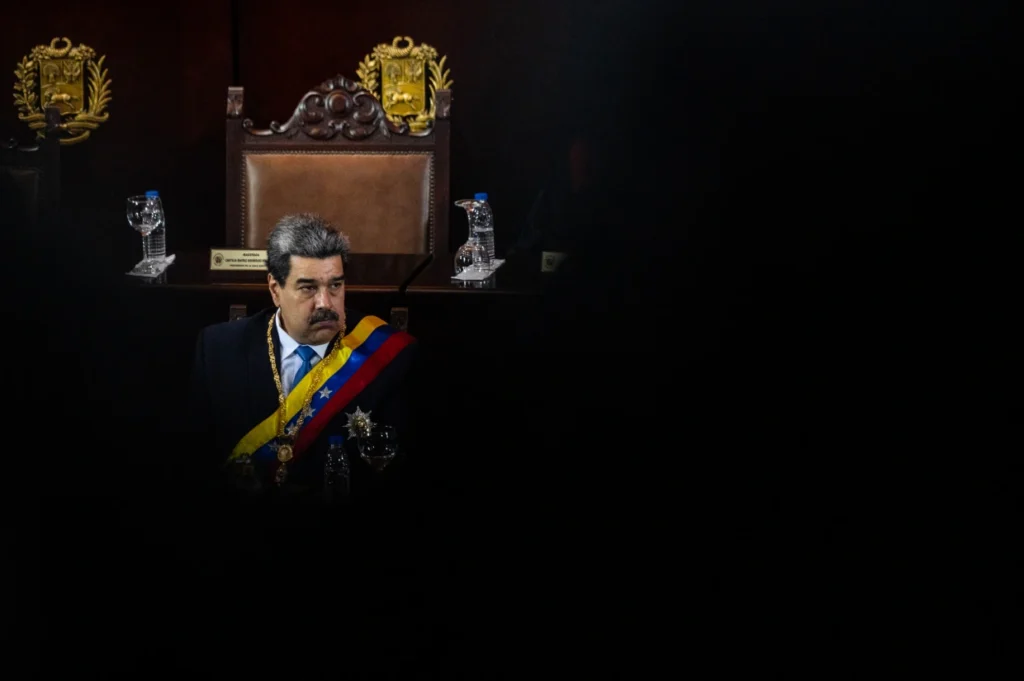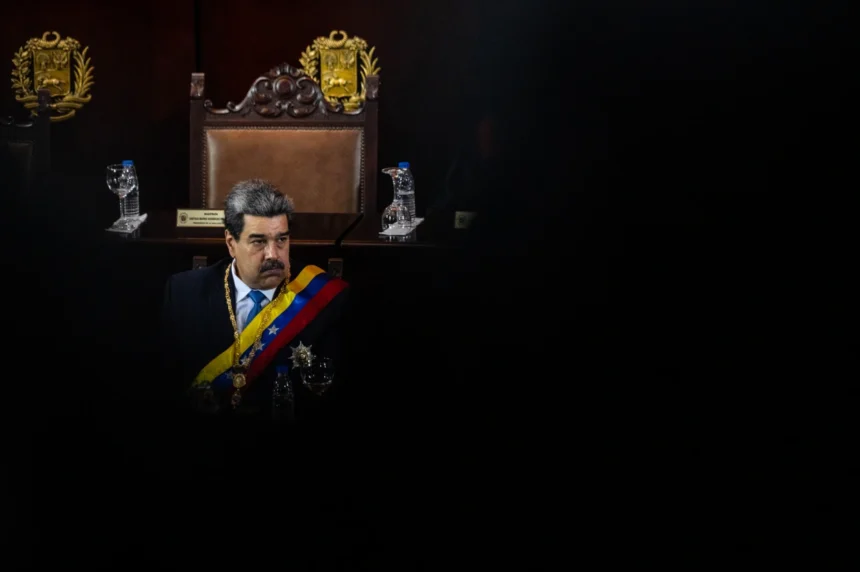About three-quarters of Venezuelans live on less than $1.90 a day, the international benchmark of extreme poverty.

CARACAS, Venezuela — In his last televised message before dying of cancer, the late President Hugo Chávez told Venezuelans to choose Nicolás Maduro as his successor, promising that the leftist policies that oversaw a reduction in poverty would continue under the then-vice president’s guidance.
That promise remains unfulfilled 10 years later. Venezuelans find themselves in a country that has largely fallen apart, as lavish government spending made possible by a historic oil boom ended, democratic norms and respect for free speech rights have eroded further and economic liberalization measures have made the rich richer and the poor poorer.
As the nation reflects on Chávez’s death a decade ago this month, Venezuelans now recognize that, whether by choice or circumstance, Maduro’s approach to running the oil-rich South American country is unlike his mentor’s, even as he repeatedly professes his reverence for Chávez.
“Things are really bad,” Ana García, a 37-year-old homemaker, said Sunday in Caracas as she carried an image of Chávez at a commemoration of his death. “The government rightly blames (economic) sanctions, but I am sure that Chávez would have found a way to help us; sometimes one feels that Maduro and the people around him do not do enough.”
Chávez used a windfall of hundreds of billions in oil dollars to launch numerous initiatives, including state-run food markets, new public housing, free health clinics and education programs.
But a global drop in oil prices and government mismanagement, first during his watch and then under Maduro, pushed the country into the political, social and economic crisis that has marked the entirety of the latter’s presidency.
More than 7 million Venezuelans have since left the country as poverty skyrocketed, malnutrition became widespread and government opponents were harassed and imprisoned.
The crisis also fueled an opposition movement backed by the U.S. government to try to topple Maduro. International pressure included economic sanctions on PDVSA, Venezuela’s state-owned energy company, designed to keep the country’s oil out of some Western markets.
In response, Maduro has turned to policies such as the distribution of highly subsidized food packages through a countrywide network of ruling-party neighborhood organizers, as well as the issuance of millions of so-called Fatherland Cards, used to access social programs and benefits including bonuses. Opposition leaders and international observers accuse the government of using the two programs as both carrot and stick during elections.
Maduro has also cracked down on protesters and activists and ordered the arrest and torture of political opponents, according to human rights activists. After the opposition won control of the National Assembly, he bypassed the body altogether by setting up a parallel legislature with supreme authority over lawmaking. Anti-Maduro parties and politicians have been barred from participating in elections.
Throughout, Maduro has consistently denied that there was a crisis at all, though he ultimately did accept food assistance from the United Nations.
The president printed more and more bolívars, the country’s currency. That sent inflation soaring, a problem he addressed twice by lopping multiple zeroes off the bolívar, introducing new bills and renaming the currency. Maduro set and then partially eliminated price controls. As the U.S. dollar spread as the de facto currency in the country, the president at first denounced it only to later embrace it as an “escape valve.”
“We have a more personalist regime that’s more about Maduro and the survival of the (ruling party) as opposed to any sort of Chavista ideas,” said Ryan Berg, director of the Americas program at the Center for Strategic and International Studies, a Washington-based think tank. “With Chavismo you had something approaching state control of pretty much most of the sectors, but there’s not that kind of spending anymore.”
Today about three-quarters of Venezuelans live on less than $1.90 a day, the international benchmark of extreme poverty. The minimum wage paid in bolivars is the equivalent of $5 per month, down from $30 in April.
Millions of teachers, professors and public employees earn the minimum wage plus bonuses, often turning to side hustles or remittances from relatives abroad to make ends meet. Others, such as older retirees, depend entirely on their pensions, which are equal to the minimum wage, and the occasional bonus.

Leave a Reply